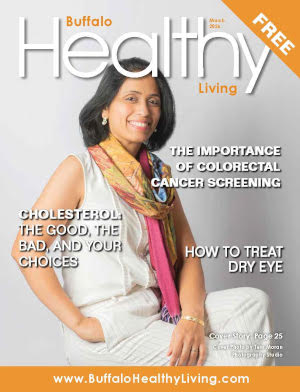Heart Health and Black History Month

Courtesy of Community Health Center of Buffalo
February celebrates both Black History and Heart Health month. Sadly, heart disease is the number one killer for all U.S. adults, stroke is the number five killer, and Black people are at a greater risk for these diseases. This is due to adverse historical factors and social determinants of health that affect access to health care, healthy food, education, and economic opportunities.
Kenyani Davis, MD, MPH, Medical Director of the Community Health Center of Buffalo, Inc., says, “Black people in our community can improve their odds of preventing and improving these diseases by knowing the risks and taking steps to address them.” Dr. Davis emphasizes the importance of routine checkups and consulting a health care provider concerning your risks. High blood pressure, obesity, and diabetes increase the risk of heart disease and stroke.
Fortunately, Black people can take steps to lower their risk for these diseases.
High blood pressure.
High blood pressure among Black people is the highest in the world. Also known as hypertension, high blood pressure increases the risk for heart disease and stroke, and may cause permanent damage to the heart before symptoms appear. High blood pressure is known as the silent killer, and develops earlier in life in Black people. “While you can’t change your family history, you can check your blood pressure regularly,” says Dr. Davis. A normal blood pressure is less than 120/80 mm Hg. The top number is the systolic pressure when your heart is contracting, and the bottom is the diastolic pressure in the arteries when your heart is relaxing. Consistent systolic readings of 130 mm Hg or higher, or diastolic readings of 80 mm Hg or higher means you have high blood pressure. Fortunately, your health care professional can work with you to determine the right medication and lifestyle changes that can help make a difference.
Obesity
Black people in the U.S. are disproportionately affected by obesity, which can be affected by living in areas without access to healthy foods. Obesity is a risk factor for heart disease, stroke, diabetes, and cancer. Making diet and lifestyle modifications can make a difference in achieving and maintaining a healthy weight.
Diabetes
Diabetes is a major risk factor for cardiovascular disease and stroke, and Black people in the U.S. are more likely to have diabetes than non-Hispanic white people. Many people do not realize that type 2 diabetes is treatable and preventable. Talk to your health care provider and work on modifying your diet and lifestyle. Simple changes can make a big difference.
Learn more about the services available at the Community Health Center of Greater Buffalo, Inc. (CHCB) with locations in Buffalo, Niagara Falls, Lockport, and Cheektowaga. CHCB cares for all patients, regardless of ability to pay, and offers discounted fees for patients who qualify. Patients are never denied services based on race, color, sex, national origin, disability, religion, or sexual orientation. CHCB accepts Medicaid, Medicare, and Children’s Health Insurance Program (CHIP). To make an appointment to better manage your health and nutrition, call 716-986-9199.









